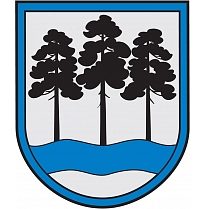Sewage monitoring data for some of Latvia’s cities indicates an increase of coronavirus concentration, which indicates a surge of the spread of Covid-19, as reported on Twitter by Latvian Biomedical Research and Study Centre representative Dita Gudra.
September’s monitoring data indicates increased concentration of the virus in sewer water in Riga, Jurmala, Liepaja and Jelgava. Measurements in Liepaja, however, show signs of stabilisation and reduced concentration of the virus.
A sharp surge is reported in Ventspils, which contradicts data reported by the Disease Prevention and Control Centre (SPKC).
In Valmiera and Jekabpils there is an increase of coronavirus concentration reported, which indicates increased spread of the infection.
A sharp increase of concentration of the virus is observed in Tukums as well, where measurements are on a sharp rise. The situation in Salaspils also indicates increased concentration of Covid-19.
In all Latvian municipalities surveyed the dominant Covid-19 variant is Omicron sub-variant BA4/5, which is found in more than 95% of cases.
As previously reported, Latvia has adopted a system to monitor SARS-CoV-2 particles in sewer water in order to predict outbreaks of the virus in populated areas.
The research included BIOR, Riga Technical University’s Water Research and Environmental Biotechnology Laboratory and Latvian Biomedical Research and Study Centre.
According to information published on BIOR website, sewer monitoring plays an important role in viral epidemiology. Analysis of the spread of SARS-CoV-2 virus in samples taken from sewage systems provides additional information to SPKC and other health institutions in order to predict and observe dynamics of the spread of the virus.
The advantage of this monitoring approach is that it is possible to determine the presence of infected people who have and don’t have symptoms in a municipality.
Collection of sewage samples from centralised systems is done twice a week. These samples are then delivered to BIOR and Latvian Biomedical Research and Study Centre, which analyse those samples for presence of SARS-CoV-2 particles and viral RNA. Samples are tested for other public health related particles.

